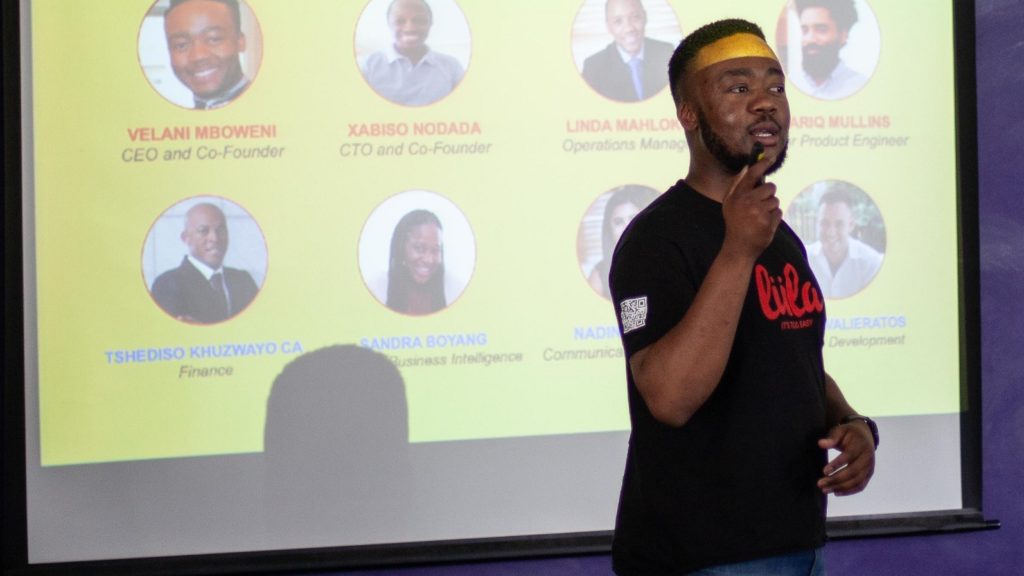AI chat is no longer just about faster answers or conversational tone. Search.com, a division of Public Good, has launched a generative AI search…
Your pitch deck is your business story, but don’t let it baffle investors [Opinion]

As an entrepreneur with a new startup, besides your sparkling personality and brilliant knowledge, one of the most important weapons you have in your armoury is your pitch deck.
Your pitch deck is your business story, it’s differentiation, and communicates in a digestible, simple form what your business is.
The technology and social media era is a complex, busy and distracted place and funders see thousands of pitch decks every month. That pitch deck finds a way to cut through the clutter, the noise, and adapt to tight time schedules to communicate who you are and what you do.
A pitch deck distils the essence of your business, so it’s a key document for any startup or company meaning it’s important to get it right
From a communication point of view, it distils the essence of your business. And it’s not just funders that may see it, but potential joint venture partners, potential clients, so it’s a key document for any startup or company – and it’s important to get it right.
Accuracy counts
It goes without saying that your pitch deck needs to be accurate. Entrepreneurs are prone to hyperbole. They can’t help it. They are naturally optimistic people and believe with all their heart that they will achieve the results they say they will.
In the US, a well-known South African entrepreneur is being indicted. Some of the key charges, which he denies and are being tested in court as I write this, are that he presented untruthful and exaggerated information on his decks.
The key take-way is simple: Be straight, be honest – even about the shortcomings or fears you have about the business. It will build trust and credibility with your future partner. No one has it all worked out, and it’s the right thing to do.
I would not even approach a funder or partner unless I have something to show for it. At the very least you need the product or the prototype.
It would be even better if your startup is producing revenue. It does not have to be profitable or producing big revenue numbers, but you just need to show the investor that your business model is working and that you have “skin in the game” and are committed to the business.
The funding will then be to either help scale that business or further develop the product, but never to develop the product from scratch.
Bullshit baffles brains
Tech people love to baffle with new jargon, and they may think it makes them look clever, but it in fact does not.
Your pitch deck should be clear and, simple. Its job is to communicate, not obfuscate. If your potential investor feels confused, it will just create suspicion and delays, which means they are unlikely to move forward with you.
Use simple, clear English. If there is a complex concept (for example a Peer-to-Peer Decentralised Cryptocurrency Exchange Platform), you can’t avoid the complexity.
But if your funder is not in the same game as you (because they are in the finance and investing game) provide analogies or real-world examples. Remember, this is a communication job, not a marketing job.
Always mention competitors
Also remember to contextualise what you are, by articulating who your competitors are. This will immediately help your funders to place you, and understand you. Never ever say “you have no competitors”.
That is a sure-fire signal to the investor that you are not completely sure about what you are doing, or you don’t know your market well enough.
There are always competitors, direct, indirect or if not now, then in the future. You don’t have to be too literal here. A competitor doesn’t have to be another company.
A competitor of yours may even be an entire industry or old way of working, but you have competitors. A good understanding of the market shows you will have a better chance of succeeding.
It is hard to believe but companies like Facebook and Google had competitors once upon a time. Anyone remember Friendster and Myspace, or the search engines AltaVista, Excite, Lycos, WebCrawler. Anyone?
The most important bit in all of this is the elevator pitch. It’s your opening statement. It’s the first impression when everyone is sceptically sizing you up.
The elevator pitch is a simple statement, in just one or three sentences, that communicates the essence of what your business does and the problem it solves.
It is harder than you think. It’s actually easier to write a waffly, mediocre and complex paragraph on what something is and much harder to compress the essence into a
sentence or two.
If you can’t do this, investors will think you are confused or unclear about your business, or will battle to communicate it to others (future staff, customers, other investors) — and that would be a red flag for them.
The money
It would be good to be clear and upfront about how much money you need, and what you intend to spend it on, but you also don’t have to show numbers at this stage. Once
the investor has bought into you, you can start wading through spreadsheets later.
It’s also probably better to emphasise that the investment will go towards scaling the business and maximising shareholder return. It’s a no-no to start talking about increasing your salary at this time.
Nice guys finish first
Remember that when you present your company, investors are not just looking at your business, they are looking at you: how you answer questions, how transparent you are, do you flap under pressure, are you defensive?
They will be thinking to themselves, “can I work with this guy”. They want someone that is “coachable” and receptive to advice.
Most VCs worth their salt don’t just want to give you money, they want to help you with business advice and network.
Lastly, if you want to speak to a funder. Never go direct and never email. Rather get an introduction. Scour LinkedIn and Facebook for people in common, call in favours.
Funders see so many people that you can often blur into the crowd. Referrals stand out, referrals have credibility.
Read more: How Naspers could help find SA’s next great tech startups [Opinion]
Read more: Pick a sector, add internet and your firm could be worth millions [Opinion]
Read more: Time for startups to get over myth of the ‘one big idea’ and just get going [Opinion]
Read more: What really is the secret to getting a VC deal? [Opinion]
Read more: SA’s startup ecosystem offers a positive vision of country’s future [Opinion]
Read more: Indonesian unicorn shows Silicon Valley model can’t beat going local [Opinion]
Read more: What’s the secret ingredient that makes entrepreneurs successful? [Opinion]
Matthew Buckland is an investor, entrepreneur and the founder of Burn Media Group, which publishes Ventureburn.com. This column was first published in Business Day. See the original version here.
Featured image: Lula founder Velani Mboweni pitching at the Africa Early Stage Investor Summit 2018 held earlier this month in Cape Town (Supplied)


